Most people realize that not just any amplifier can power any speakers. They need to match. But why? What happens if this is not the case? In a word: Clipping. Read on to learn more about this most-common and preventable form of distortion.
A matter of impedance
One major measurement that will help you find the right amplifier for your loudspeakers is impedance. Given in ohms (Ω), impedance indicates the amount of resistance an electrical device offers to electric current. Loudspeakers with a lower impedance value offer less resistance to the current. This means that they pull more power from the amplifier. If the amount of electrical resistance imposed by each device is mismatched, two negative outcomes can result: Damage to your system and distortion in the form of clipping.
How amplifiers react to being overdriven
Clipping occurs when more power is required from an amplifier then it is able to deliver. Once the maximum amount of power supply voltage has been reached, it becomes impossible to amplify the incoming signal without compromising its form. This means that the signal is amplified but in a very distorted form. In technical terms, the sine output signal loses its rounded peaks and troughs. This occurs when the highest and lowest points of the sound wave are cut — or clipped — off.
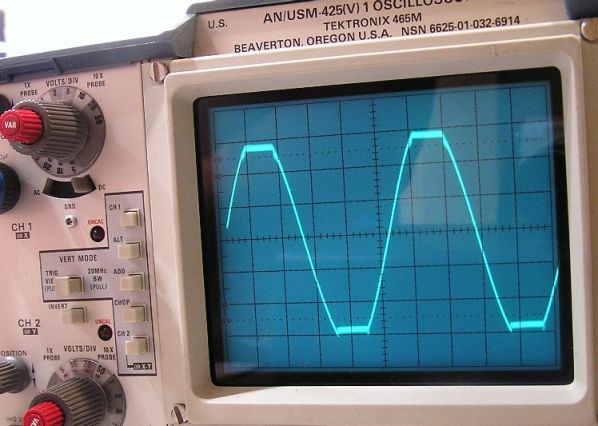
When the audio signal becomes distorted in this manner, not only does the sound suffer, speaker systems can be damaged by clipping. For one, since clipping is a result of an overdriven amplifier, the electronics can become overheated. But the loudspeakers themselves can also be harmed. In fact, clipping is actually more likely to damage your speakers than your electronics.
Why clipping is bad your loudspeakers
A poorly aligned speaker system consisting of high-performance loudspeakers and a weak amplifier will be especially prone to clipping. If the loudspeakers do not receive enough power from the amplifier, they will automatically “demand” more than the amplifier can deliver. This can cause the speakers to become damaged.
Since a clipped signal contains a high number of high frequency harmonics, tweeters are especially at risk for damage. These high frequency tones not present in the original signal are directly fed to the tweeter by the speaker’s crossover. The result can be a burned voice coil, i.e. permanent damage to your system.
On a positive note, clipping normally only occurs at very high levels. In other words, you would have to really turn a speaker system up full blast before the signal becomes clipped. Also, this will also only occur if the system’s electronics and speaker components are misaligned. For this reason, it’s important to pair your speakers with an amplifier powerful enough to deliver a clean and undistorted signal.
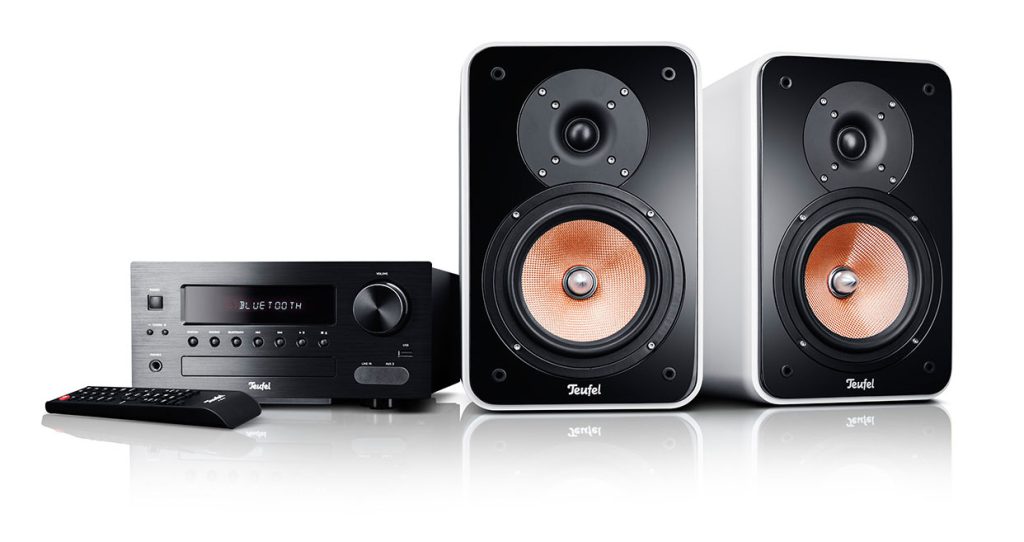
Teufel’s loudspeakers & receivers: Made for each other
• Kombo 42 BT: This all-in-one set takes the guesswork out of finding the right receiver for your stereo speakers. A maximum power output of 80 watts provides the 2-way bookshelf speakers with a perfectly amplified signal for a well-differentiated and powerful sound across the entire frequency spectrum.
• Kombo 500: The KB 62 CR CD receiver gets the most out of the Theater 500 3-way tower speakers. In addition to Bluetooth and AptX codec, the KB 62 CR offers DAB+ digital radio and a USB port for connecting additional source devices.
Clipping: A common form of distortion that’s easy to prevent
• Clipping is a form of distortion that results when an amplifier lacks the power to amplify a signal to meet demand by the speakers
• With clipping, the highest and deepest points of the sound wave — the troughs and peaks – are removed, leading to a distorted signal
• Clipping occurs when an amplifier is overdriven, that is, when it is pushed to amplify a signal beyond its power capacity
• A clipped signal contains additional high-frequency harmonics which can overheat and damage tweeters
Picture #1: By No machine-readable author provided. Lgreen~commonswiki assumed (based on copyright claims). [GFDL (http://www.gnu.org/copyleft/fdl.html), CC-BY-SA-3.0 (http://creativecommons.org/licenses/by-sa/3.0/) or CC BY 2.5 (http://creativecommons.org/licenses/by/2.5)], via Wikimedia Commons
Pictures #2: Property of Teufel Audio
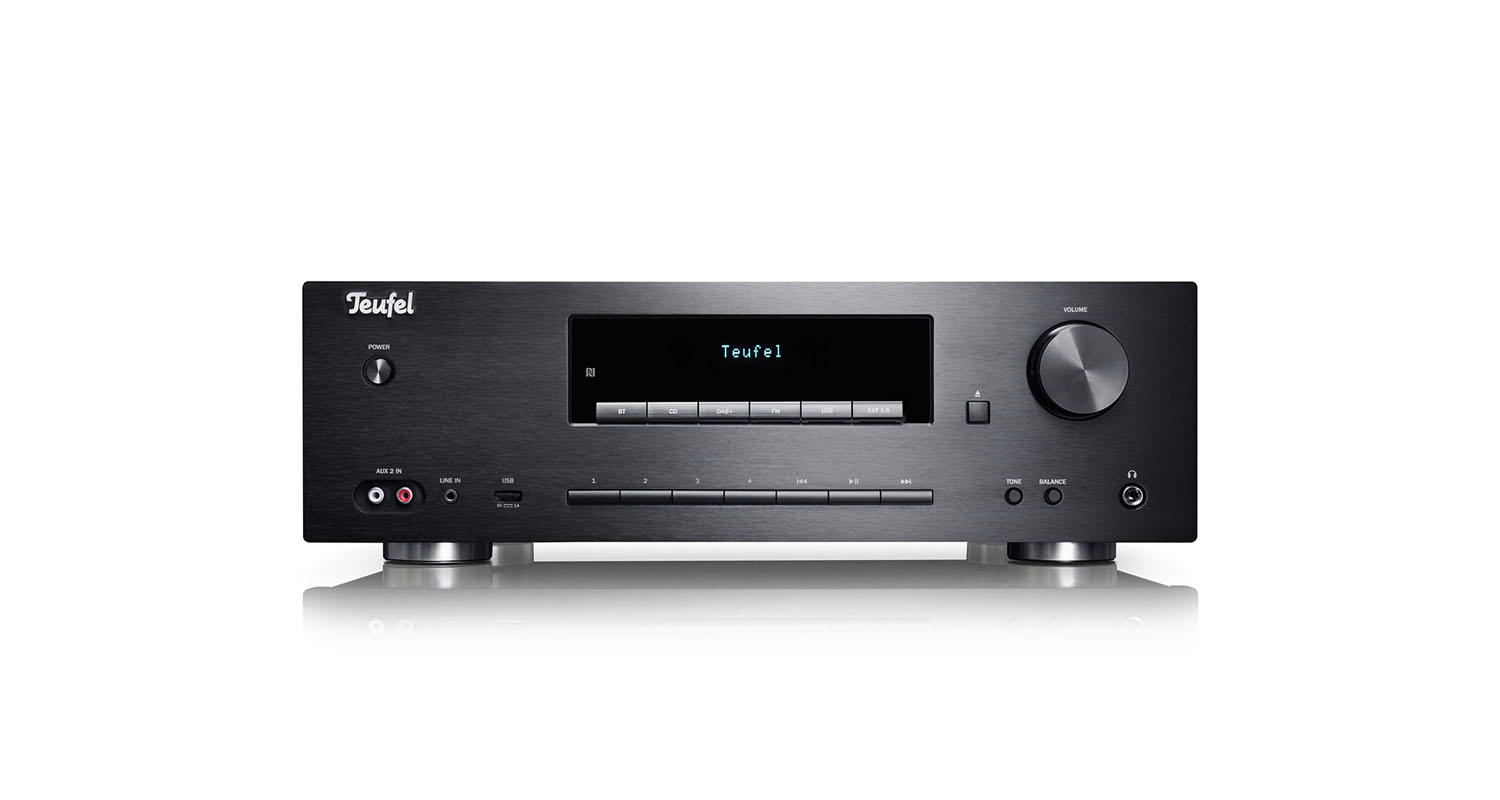
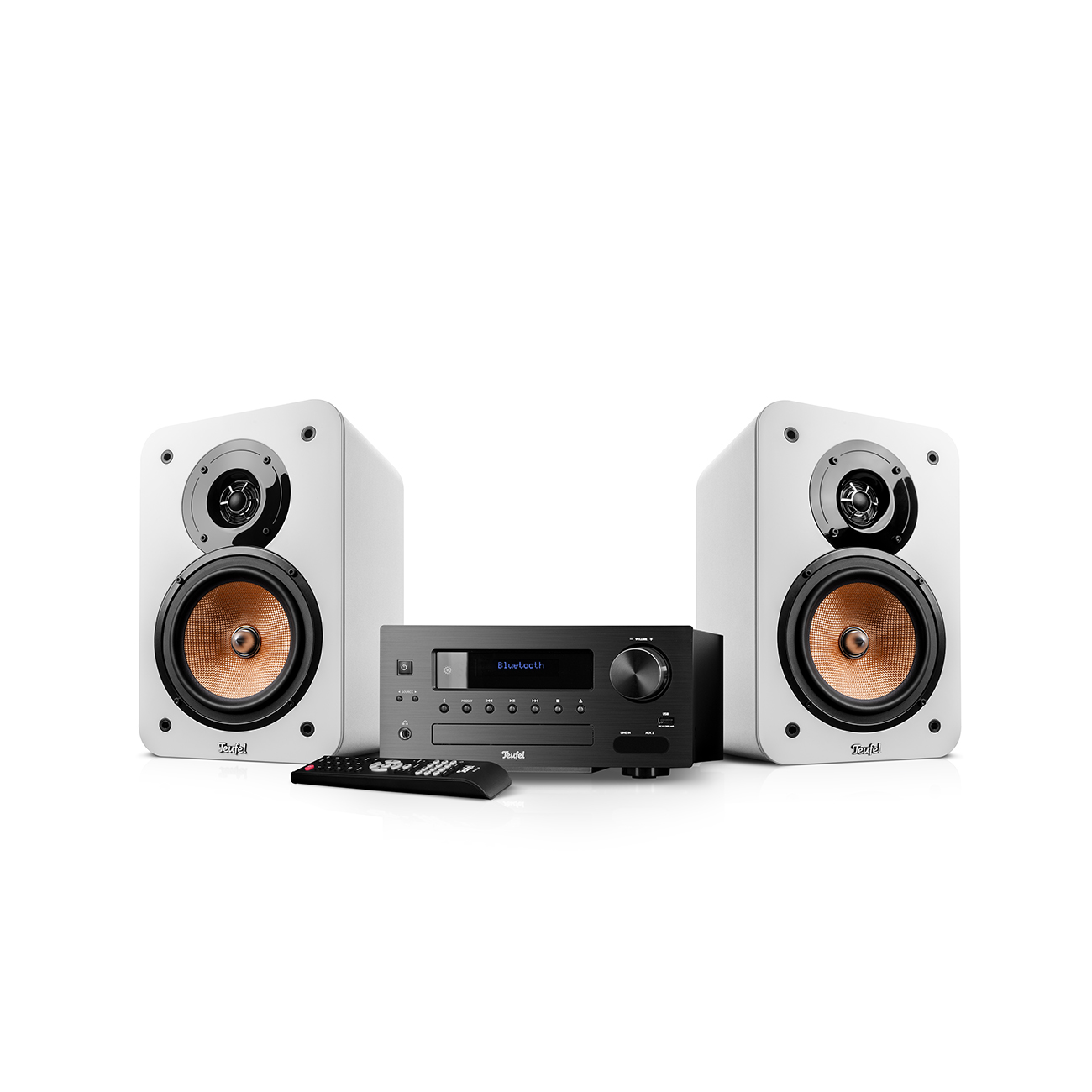
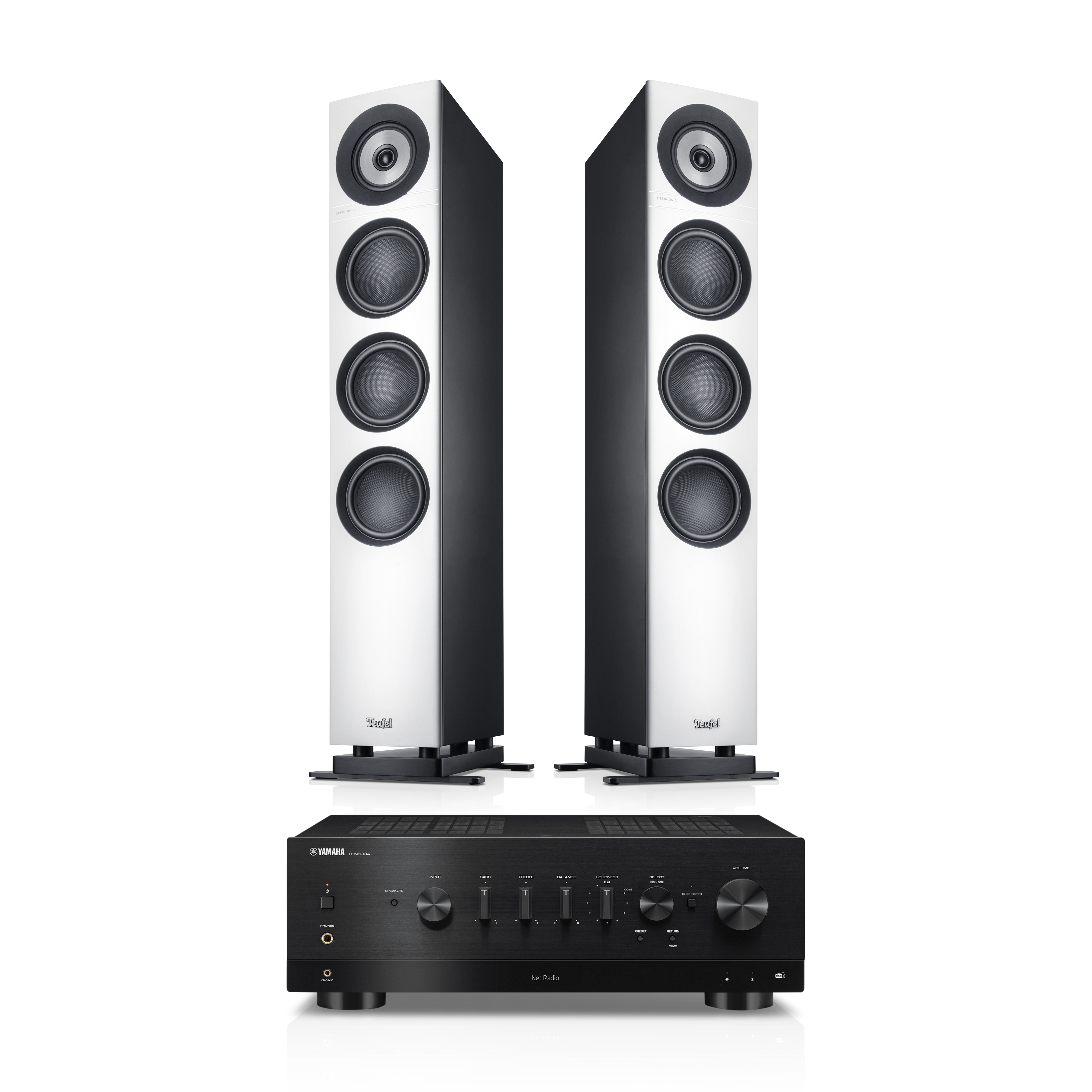


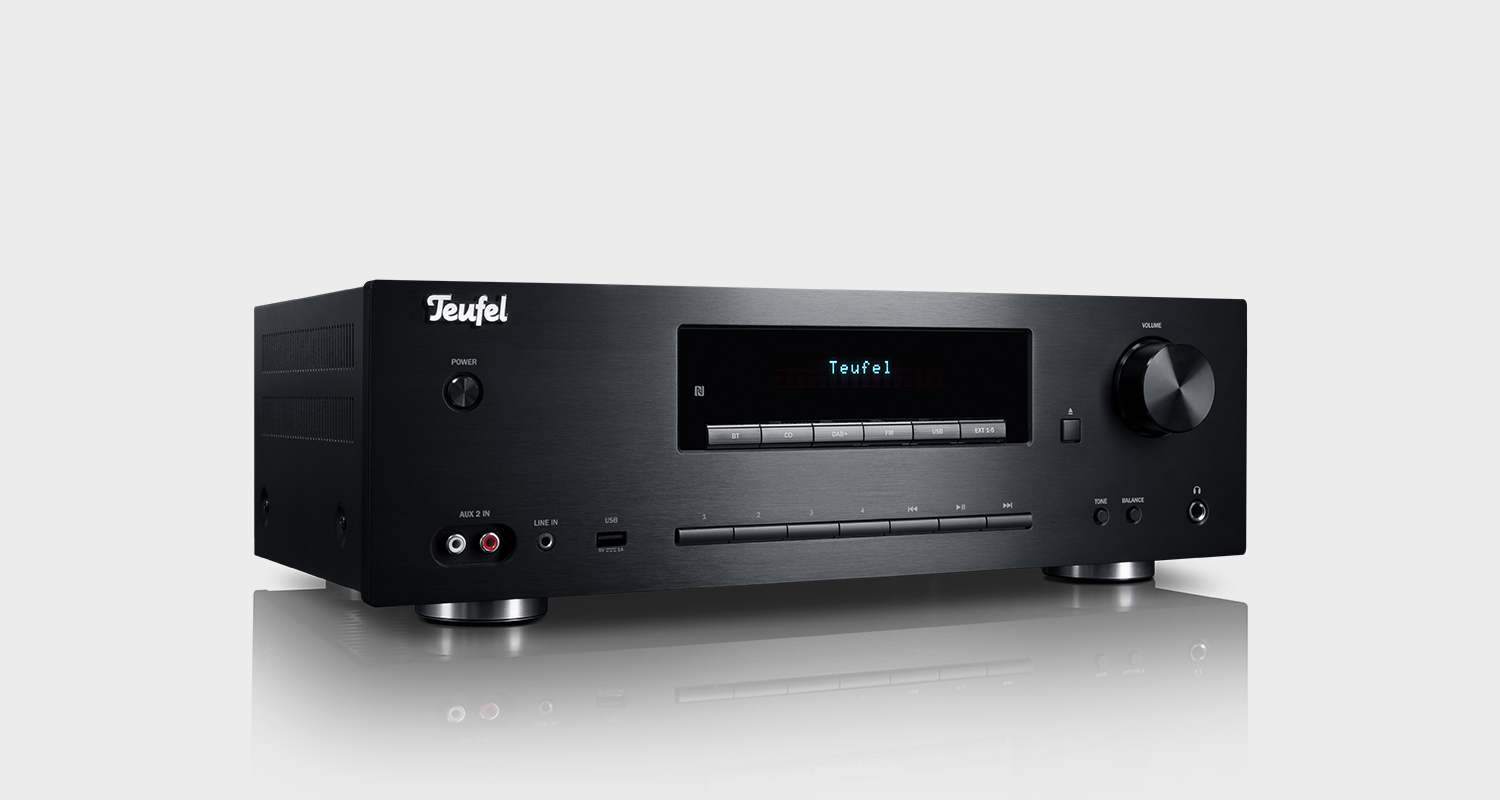
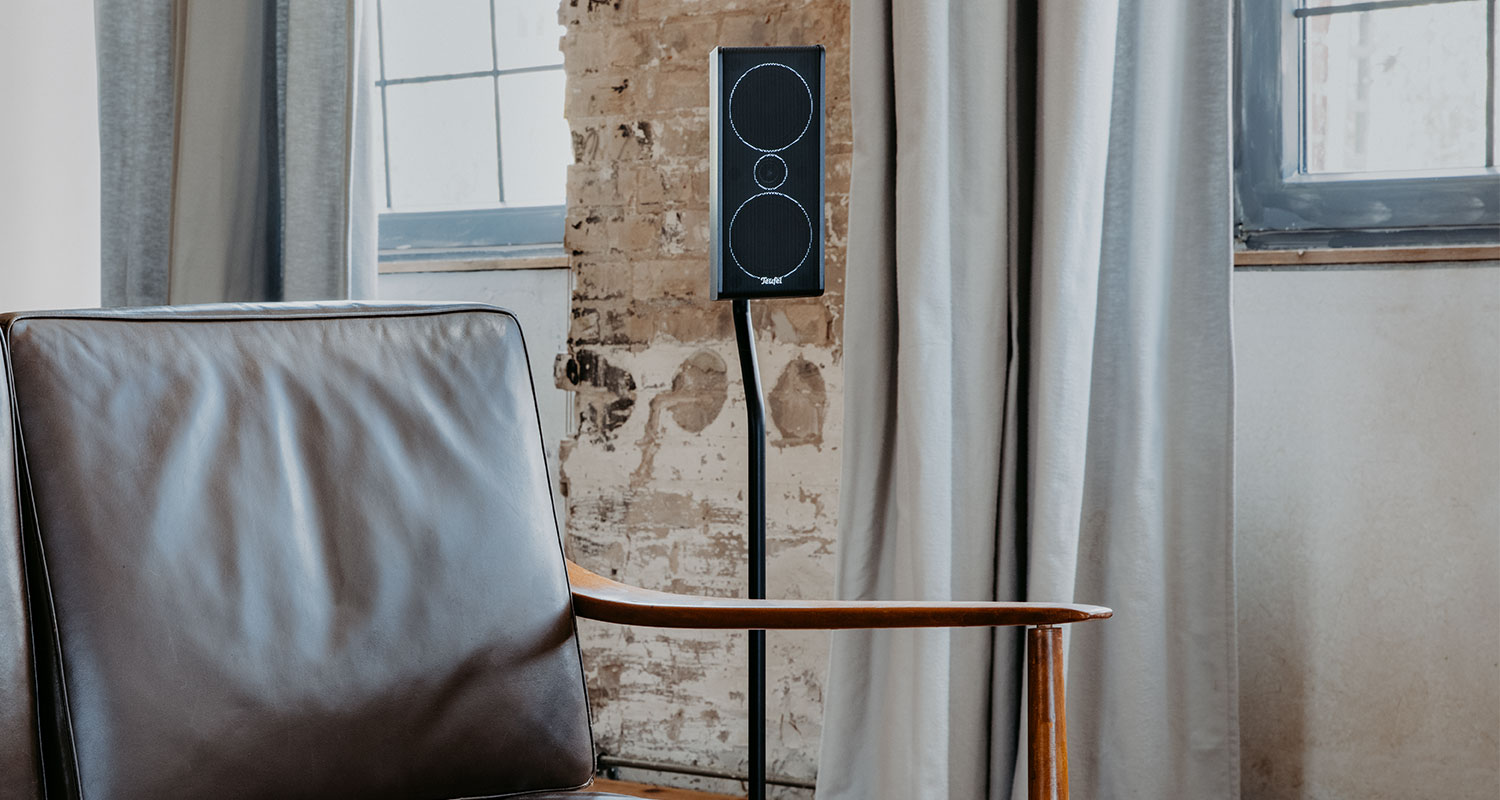
2 responses to “Clipping: When your amplifier is no match for your speakers”
“Clipping occurs when more power is required from an amplifier then it is able to deliver.” I believe it should be ‘than it is able to deliver’, not ‘then’.
Thanks for the head’s up!